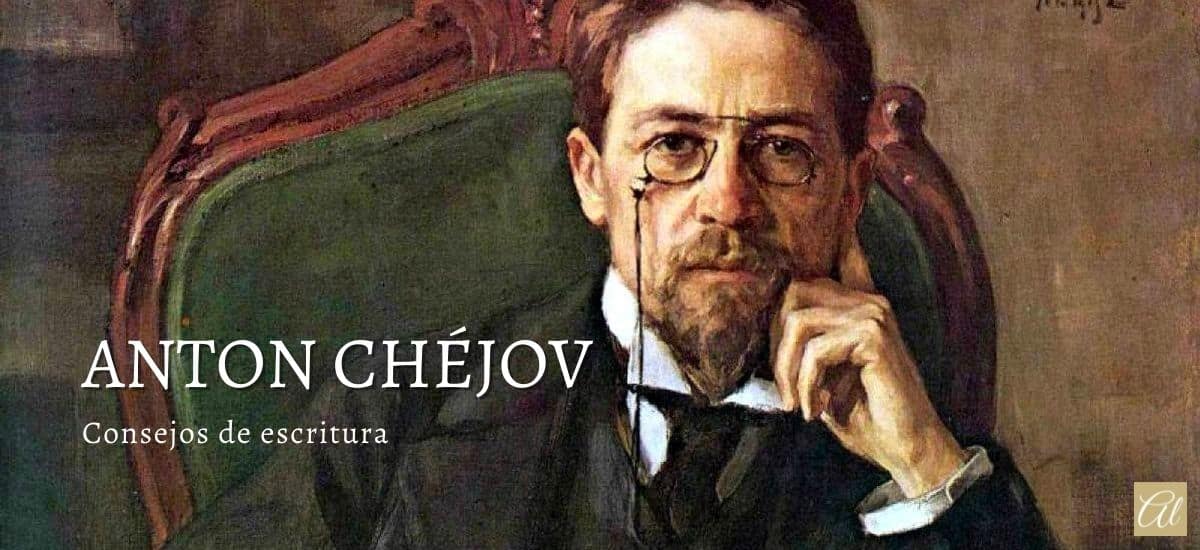
Portrait of Chekhov, by Osip Braz.
Anton Chekhov He was a playwright and author of stories, as well as a doctor, and also one of the most prominent writers of Russian literature of the XNUMXth century. In fact he is considered the most important representative of the school realistic, master of the story and also a fundamental figure of modern naturalism within the Russian theater. Here is a selection of his writing tips.
Anton Chekhov
His dramatic works and those stories are a criticism of society he had to live in Russia before the 1905 revolution. Chekhov created a new technique that he called "indirect action" with which he gives more importance to the details of the characterization and interaction between the characters than to the plot or direct action. He manages the emotions and the drawing of these characters, whom he does not judge and allows them to speak in their own language. It also gives a voice to the weakest, to children, women or prisoners, in a way unknown until then. His texts reflected sensitivity and sense of humor, a bit like his existence, with that weak side of tuberculosis that he suffered throughout his life and from which he died in 1904.
Some of his most important works and stories were The vacationers and other stories, Posthumously Published, Steppe, the cicada, room number 6, The black monk o the dog lady. Among his theatrical works stand out La gaviota, Uncle Vanya o The three sisters.
writing tips
Extracted from No plot and no end.
- The art of writing consists in saying a lot with few words.
- A writer, more than writing, must embroider on paper; that the work be thorough, elaborate.
- You don't end up with a broken nose from bad writing; on the contrary, we write because we have broken our noses and have nowhere to go.
- When I write I don't have the impression that my stories are sad. In any case, when I work I am always in a good mood. The happier my life, the darker the stories I write.
- Brevity is the sister of talent.
- Do not polish, do not file too much. You have to be clumsy and bold. Brevity is the sister of talent.
- I've seen it all. However, now it is not about what I have seen but how I have seen it.
- It's strange: now I have a mania for brevity: nothing I read, mine or someone else's, seems short enough to me.
- When I write, I fully trust that the reader will add on his own the subjective elements that are missing from the story.
- Nothing is easier than describing unsympathetic authorities. The reader likes it, but only the most insufferable, the most mediocre of readers. God keep you from the common places. Best of all is not to describe the mood of the characters. You have to try to get rid of your own actions. Do not publish until you are sure that your characters are alive and that you are not sinning against reality.
- It is easier to write about Socrates than about a young lady or a cook.
- Keep the story in a trunk for a whole year and, after that time, read it again. Then you will see everything more clearly. Write a novel. Write it for a whole year. Then shorten it by half a year and then publish it. A writer, more than writing, must embroider on paper; that the work be thorough, elaborate.
- It is not the writing itself that nauseates me, but the literary environment, from which it is impossible to escape and that accompanies you everywhere, like the earth's atmosphere. I don't believe in our intelligentsia, which is hypocritical, false, hysterical, rude, idle; I don't believe her even when she suffers and laments, since her persecutors come from her own bowels. I believe in individuals, in a few people scattered in every corner – be they intellectuals or peasants; in them is the strength, even if they are few.
- My God, do not allow me to judge or speak of what I do not know and do not understand.
- I advise you: 1) no nonsense of a political, social, or economic nature; 2) absolute objectivity; 3) truthfulness in the painting of the characters and things; 4) maximum conciseness; 5) audacity and originality: rejects everything conventional; 6) spontaneity.
- It is difficult to unite the desire to live with the desire to write. Don't let your pen run when your head is tired.
- You should never lie. Art has this particular greatness: it does not tolerate lies. You can lie in love, in politics, in medicine, you can fool people and even God, but in art you cannot lie.
- Writing for critics makes about as much sense as giving a person with a cold to smell flowers.
- Let's not be charlatans and let's say frankly that in this world nothing is understood. Only charlatans and idiots think they understand everything.
Sources: Biographies and Lives — Sinjania